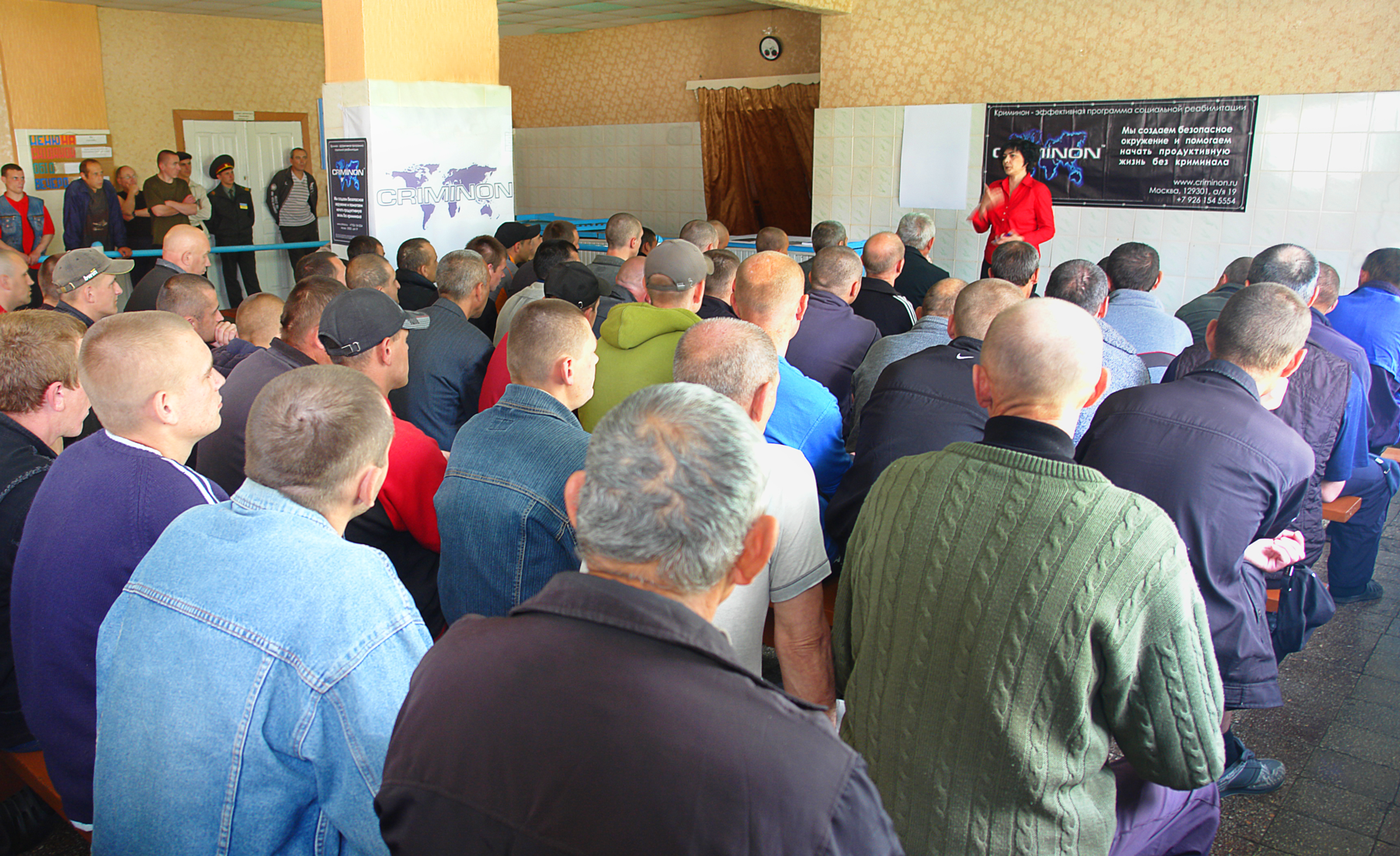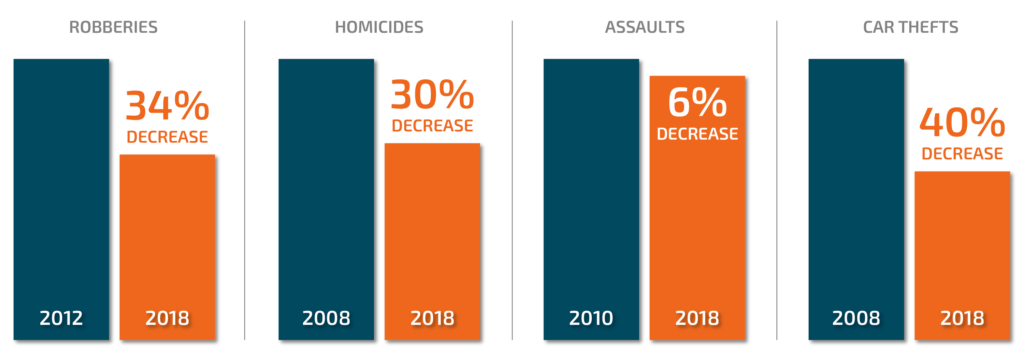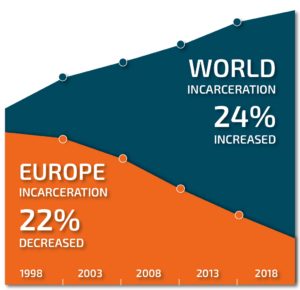
Europe
The European approach to criminal justice is uniquely humane in many ways. And Europe has some of the lowest crime rates in the world. A thorough study would determine if these two facts are related. But it is an intriguing possibility.
Crime Statistics in Europe
Crime statistics of all different types are reasonably well documented in Europe. Some of Europe’s crime statistics are:

- Police-recorded robberies in the European Union were 299,000 in 2018, a 34 percent decrease from 2012.
- There were 3,993 police-recorded homicides in Europe in 2018, a 30 percent reduction from 2008.
- In 2018, there were 583,000 police-recorded assault crimes. That figure is down 6 percent from 2010’s figure of 621,500 assaults.
- Car thefts are also declining in Europe. In 2018, there were about 528,000 recorded car thefts across the European Union. That figure represents a 40% reduction from 2008.
European crime has been decreasing over the past several years. But any crime is still of concern whenever it manifests, and the European Union continues to work to improve the criminal justice system.
European Criminal Justice
It could be argued that Europe leads the world in advancing an effective, fair, compassionate, streamlined and humane criminal justice system. The European Union has dedicated significant efforts towards establishing a system that supports victims of crime and penalizes criminals fairly but does so without dehumanizing them.
Advancements in European criminal justice include:
- Creation of a joint strategy towards reducing crime and recidivism across EU nations,
- Development of programs that support and assist victims of crime,
- Implementation of strict rules and principles that protect the rights of suspects and accused persons,
- Improvement of cross-border cooperation and access to evidence,
- Establishment of better protection against international terrorism and
- Implementing new rules and regulations to bring the subject of environmental crime into the criminal justice space.
Penalties for Crimes Committed in Europe
Punishments and penalties are enforced with extreme discretion in Europe. There are stringent rules and regulations on policing, with lower numbers of police brutality incidents than other areas in the world. Furthermore, there has been an ongoing effort to ban the death penalty in Europe altogether. As of 2019, all European countries had abolished the death penalty except for Belarus. Russia has placed a suspension on the death penalty and has not held an execution since 1999.

Europe is one of the few areas in the world where incarceration rates have declined over the last 20 years, with a 22% decrease. (In contrast, the prison population has increased by 24% worldwide in the same period.) Europe’s prison population per capita is at its lowest levels since the turn of the century. 495,000 persons were incarcerated in 2018 — that’s about 111 incarcerated for every 100,000 people in Europe. The highest prisoner rates in the EU are in Lithuania, the Czech Republic, Estonia, and Latvia, and the lowest rates of incarceration are in Slovenia, the Netherlands, Sweden, and Finland.
Criminal Justice Reform Efforts in Europe
The people and governments of Europe view criminal justice as a central element of human rights protection. The governing principle in the region is to protect human rights regardless of any complications arising from the diversities and varied cultures that span the European continent. Criminal justice reform is a priority with European legislators, justice departments and the people.
The Council of Europe is the organization that works to implement universal human rights standards within all European national criminal justice systems. Their framework on criminal justice reform is explained in the following quote, “Over recent years, many countries had to undertake an in-depth reform to bring their criminal justice system in line with Council of Europe standards. In addition, throughout Europe, criminal justice systems have faced new types of challenges: greater complexity of cases due to societal changes, the development of new technologies and the internationalization of crime; budgetary constraints; increased workload and at the same growing expectations from the public. Considering that a fair and efficient criminal justice system is a prerequisite for any democratic society based on the rule of law, the Council of Europe pays a lot of attention to legal and institutional reforms in the sphere of criminal justice.”
Looking to the future, Europe will have increasingly complex problems to solve within its criminal justice programs, such as international crime, cybercrime, human trafficking, sexual crime, and drug trafficking. If the European criminal justice system expands, while keeping with the basic methods and approach that seem to be successfully working, there is hope that the crime stats will stay on the decline in Europe.
Sources:
- https://ec.europa.eu/eurostat/statistics-explained/index.php?title=Crime_statistics#car_thefts_in_the_EU-27_2018
- https://ec.europa.eu/info/policies/justice-and-fundamental-rights/criminal-justice_en
- https://ec.europa.eu/eurostat/statistics-explained/index.php?title=Prison_statistics#One_prisoner_for_every_896_people_in_the_EU-27_in_2018
- https://www.coe.int/en/web/national-implementation/thematic-work/criminal-justice-reform
- https://www.prisonstudies.org/sites/default/files/resources/downloads/wppl_12.pdf
- https://www.prisonpolicy.org/blog/2020/06/05/policekillings/
- https://ec.europa.eu/eurostat/statistics-explained/index.php?title=Crime_statistics
News and Successes from Europe:
Nothing Found

